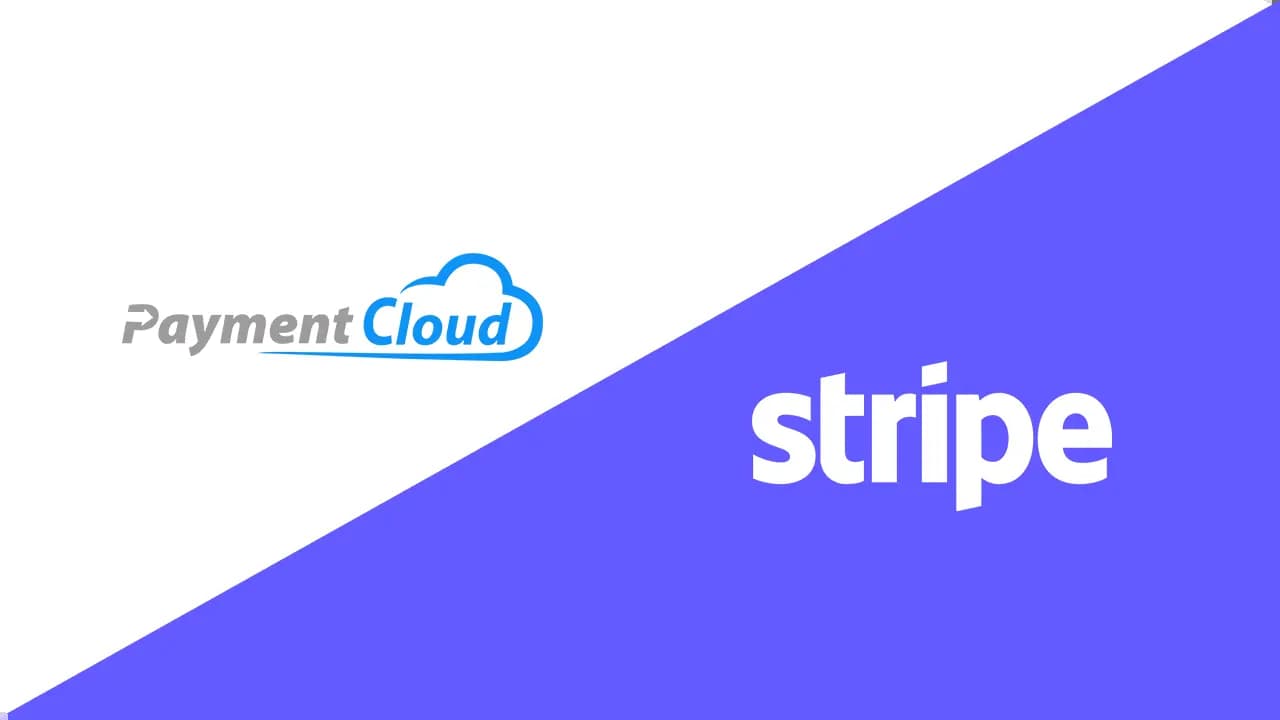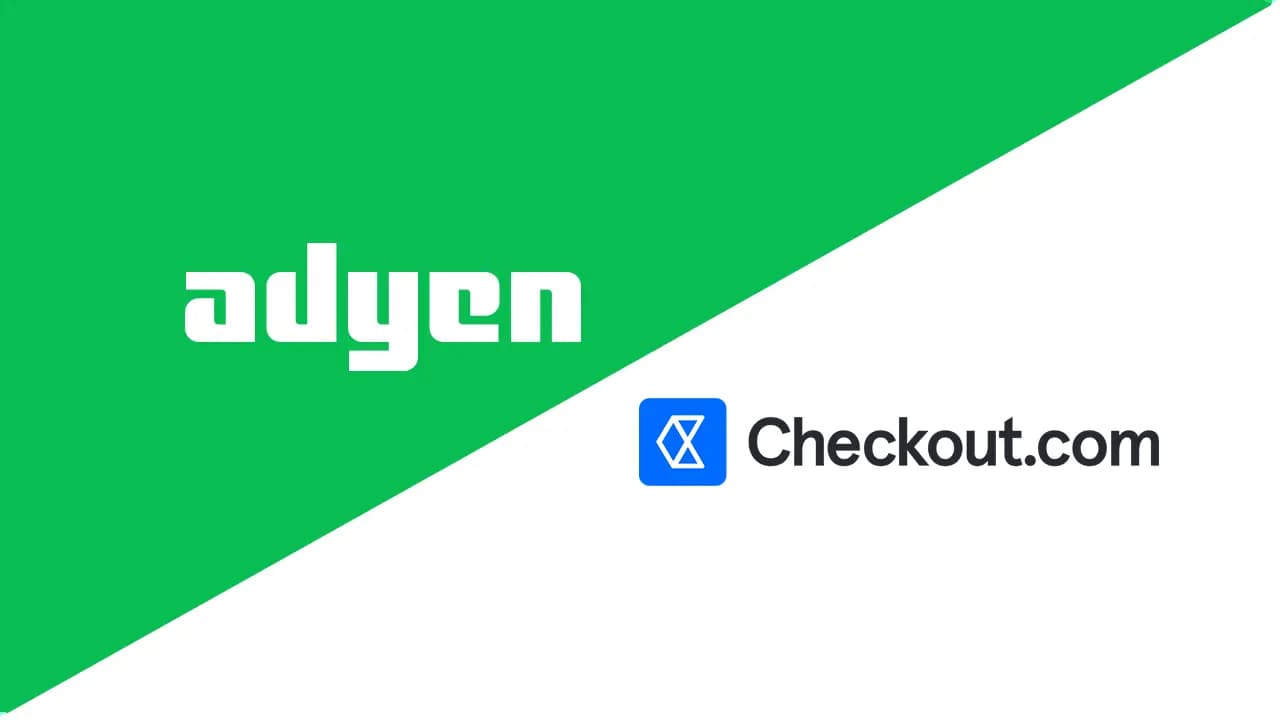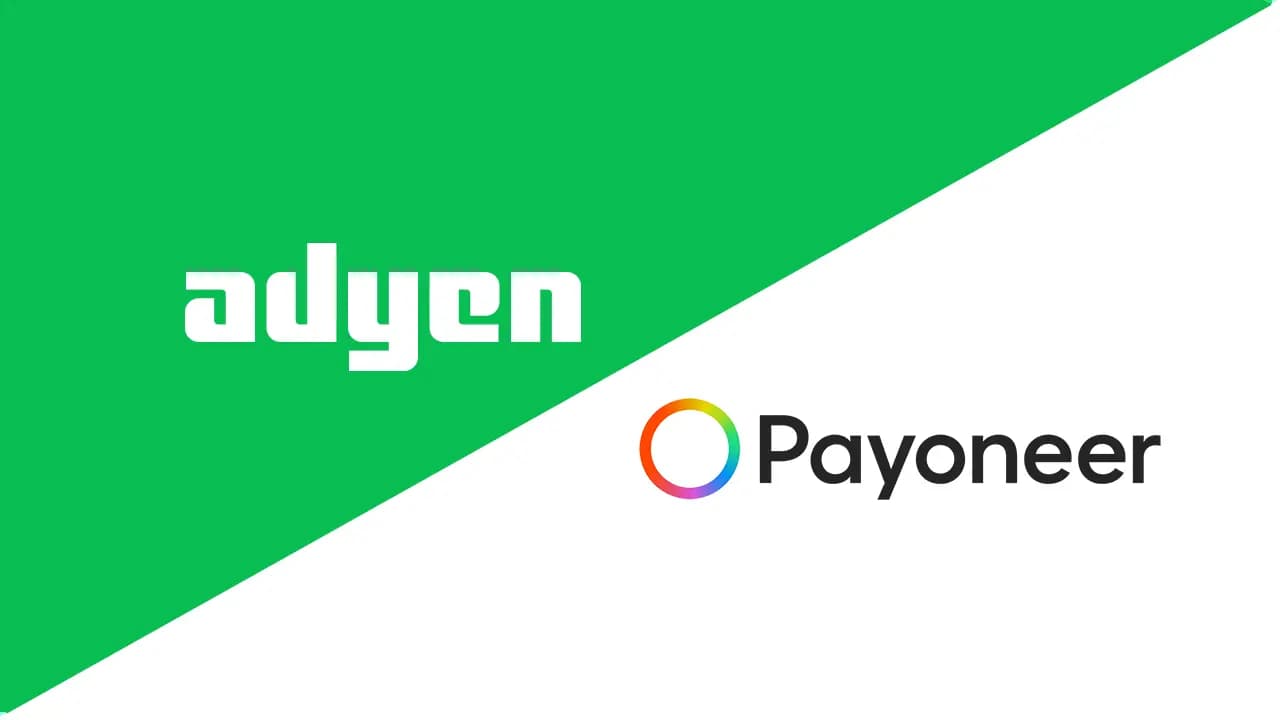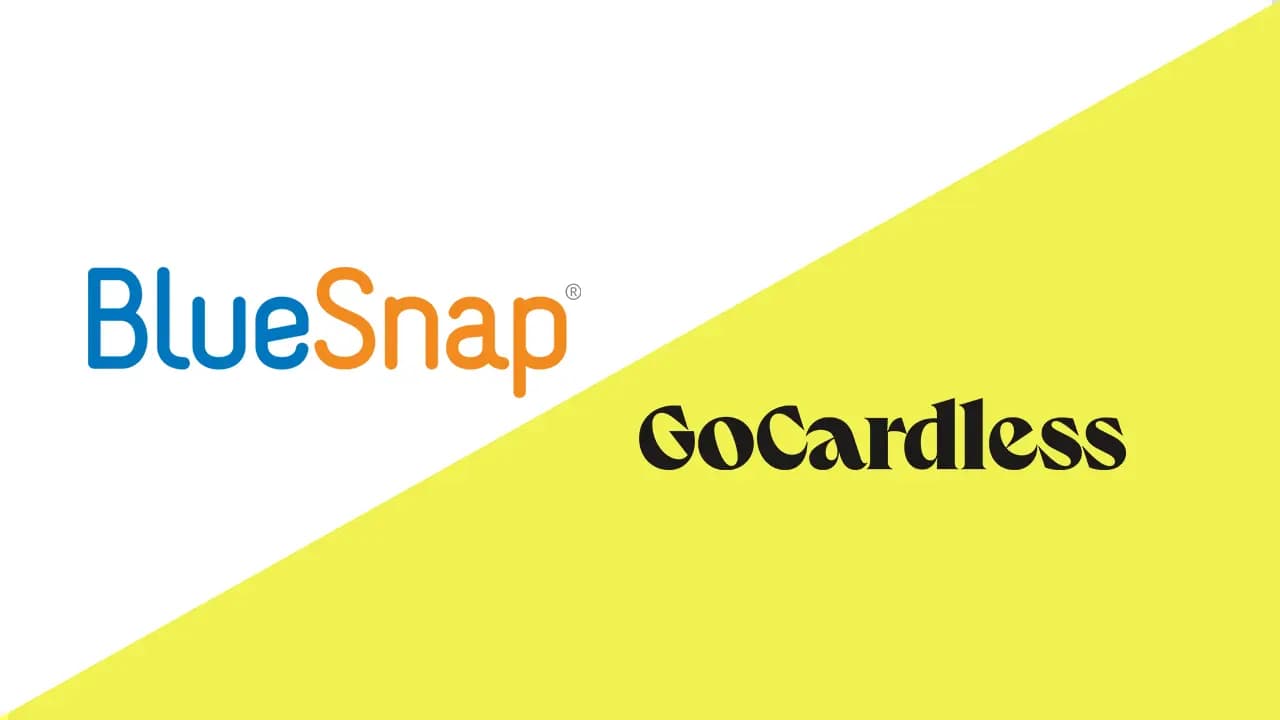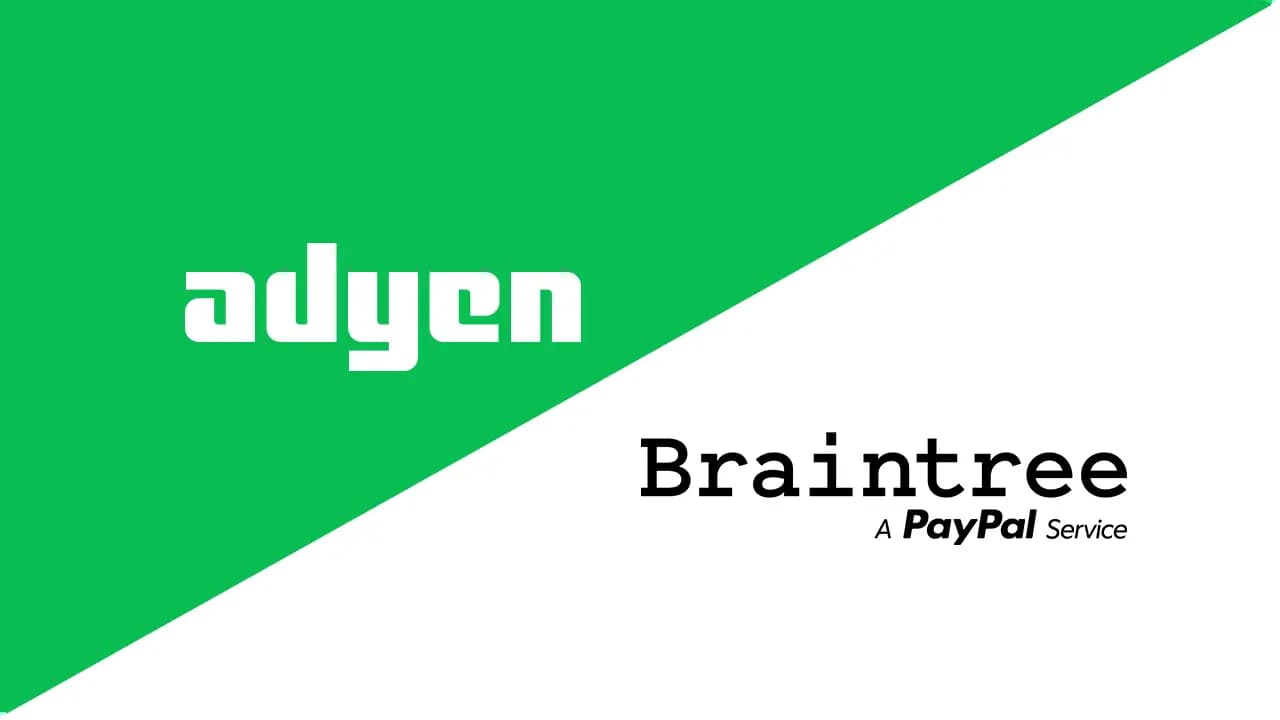
Adyen for Platforms vs. Checkout.com Integrated Platforms: A Comprehensive Comparison
Choosing the Right Platform Payment Strategy for Your Marketplace or Platform Business
When selecting a payment solution for platforms and marketplaces, choosing between Adyen for Platforms and Checkout.com’s integrated platform is a fundamental decision regarding your infrastructure approach and growth strategy. Adyen for Platforms offers a mature, end-to-end embedded payments solution with extensive financial product capabilities built on years of marketplace expertise. At the same time, Checkout.com’s Integrated Platforms solution provides a highly customizable, modern payment infrastructure focused on flexibility and rapid implementation. This decision shapes not just your payment processing capabilities, but your entire platform ecosystem and ability to offer embedded financial services. Adyen processed over €1.2 trillion in total volume during 2024, with its platform business representing the company’s fastest-growing segment at 44% year-over-year growth, while Checkout.com processed over $225 billion in annual transaction volume with 40+ companies processing over $1 billion annually on its platform.
Key Takeaways
- Market Maturity: Adyen for Platforms launched in 2016 with extensive marketplace experience, while Checkout.com’s Integrated Platforms solution launched in 2022 with an emphasis on modern, flexible infrastructure
- Product Breadth: Adyen offers comprehensive embedded financial products, including issuing and business accounts, while Checkout.com focuses on core payment processing with advanced optimization features
- Geographic Focus: Adyen for Platforms supports 27 European countries for onboarding sub-merchants, while Checkout.com Integrated Platforms operates across 150+ countries with a broader global reach
- Customization Approach: Checkout.com emphasizes highly customizable solutions tailored to individual merchants, while Adyen provides standardized features deployed uniformly across all platform clients
- Integration Philosophy: Adyen offers 100+ pre-built integrations with unified updates, while Checkout.com provides 50+ integrations with more customization flexibility
Payment Solution Type Overview
Modern platform payment solutions can be categorized into two distinct approaches based on their architectural philosophy and service breadth.
Comprehensive Platform Solutions combine payment processing with extensive embedded financial products and services. These platforms prioritize depth of features, providing capabilities like card issuing, business accounts, and working capital alongside core payment processing. They emphasize a complete ecosystem approach where platform businesses can offer a full suite of financial services to their users.
Infrastructure-First Platform Solutions focus on building highly flexible, modern payment infrastructure that prioritizes customization and technical excellence. These platforms emphasize adaptability, allowing platform businesses to tailor payment flows precisely to their needs while maintaining high authorization rates and performance optimization.
Adyen for Platforms Overview
Adyen for Platforms is an end-to-end payment solution for peer-to-peer marketplaces, on-demand services, crowdfunding platforms, or any other platform business model, enabling platform businesses to onboard users, process payments, and manage payouts through a single unified solution. Originally launched as MarketPay in 2017, the solution was rebranded as Adyen for Platforms, representing Adyen’s dedicated offering for the platform economy.
What Is Adyen for Platforms?
Adyen for Platforms allows platform and marketplace businesses to easily embed payments into their product with out-of-the-box solutions or fully customizable setups. The platform helps users sign up, sell, and get paid all in one place, with Adyen handling verification, compliance, and regulatory requirements. Beyond basic payment processing, Adyen for Platforms enables platform businesses to expand their offerings with embedded financial products, including card issuing, business accounts, and working capital solutions.
How Does Adyen for Platforms Work?
Adyen for Platforms operates as an integrated solution where platform businesses become the merchant of record, processing payments on behalf of their users while Adyen handles the underlying payment infrastructure. The platform provides comprehensive onboarding and verification capabilities, automated split payments, flexible payout scheduling, and detailed reconciliation reporting. Users can sign up and start accepting payments immediately after registration, with Adyen performing verification checks in the background or allowing platforms to use their own verification solutions.
Adyen for Platforms emphasizes removing complexity from platform operations by providing everything needed in one integrated system, from payment acceptance to fund management, reporting, and embedded financial services.
Adyen for Platforms Features and Pricing
Adyen for Platforms Features
- End-to-end payment processing with support for 27+ payment methods
- Automated seller onboarding and real-time verification
- Split payments with flexible fund allocation at authorization or capture
- Delayed capture for escrow functionality
- On-demand and scheduled payouts to 27 supported European countries
- Embedded card issuing with Mastercard and Visa
- Business accounts for merchant fund management
- Working capital through Adyen Capital
- Comprehensive API and webhook infrastructure
- Unified Commerce capabilities for omnichannel operations
- Advanced fraud prevention with RevenueProtect
- Detailed reconciliation and reporting tools
- IRS Form 1099-K generation for US marketplace sellers
Adyen for Platforms Pricing
- Interchange++ pricing model with transparent fee breakdown
- Processing fee: Approximately €0.11 per transaction
- Payment method fees vary by card type and region
- No monthly fees, setup fees, or integration fees
- Minimum invoice requirements based on business model
- Custom pricing available for enterprise volumes
- Transaction fees can be passed directly to platform users
- Separate pricing for embedded financial products
Adyen for Platforms Transaction Fees
- Standard processing fee plus payment method fee
- Interchange fees are passed through transparently
- Scheme fees are itemized separately
- Adyen markup and commission fees clearly defined
- Four granular fee types: Interchange, Scheme Fee, Markup, Commission
- Fees can be allocated to platform or user balance accounts
- Chargeback fees vary based on transaction type
Adyen for Platforms Strengths and Weaknesses
Strengths of Adyen for Platforms
- Mature Solution: Launched in 2016 with years of marketplace-specific development and refinement
- Comprehensive Ecosystem: Extensive embedded financial products beyond payments including issuing and business accounts
- Proven Scale: Part of Adyen’s infrastructure that processed over €1.2 trillion in 2024
- Unified Platform: Single technology stack with consistent features across all implementations
- Strong European Presence: Deep regulatory expertise and local acquiring across European markets
- Financial Products: Complete embedded finance suite with card issuing, business accounts, and capital
- Unified Commerce: Seamless integration between online and in-person payment channels
Weaknesses of Adyen for Platforms
- Geographic Limitations: Sub-merchant onboarding limited to 27 European countries versus competitors’ global reach
- Standardization Focus: Less customization flexibility compared to competitors prioritizing bespoke solutions
- Complexity: More comprehensive feature set can mean steeper learning curve
- Minimum Requirements: Minimum invoice amounts may not suit all marketplace sizes
- Currency Support: Supports 30+ currencies versus competitors offering 150+ currencies
Who Benefits the Most From Adyen for Platforms?
Adyen for Platforms Is Best For
- European Marketplaces: Platforms primarily operating in the 27 supported European markets
- Omnichannel Platforms: Businesses requiring both online and in-person payment capabilities through Unified Commerce
- Financial Services Seekers: Platforms wanting to offer comprehensive embedded financial products to users
- Established Platforms: Businesses with sufficient volume to meet minimum invoice requirements
- Compliance-Conscious Operations: Platforms prioritizing regulatory compliance and built-in verification
- Growth-Focused Platforms: Businesses wanting to expand platform offerings beyond basic payments
Ideal Use Cases For Adyen for Platforms
- European peer-to-peer marketplaces requiring split payments and escrow
- On-demand service platforms need flexible payout scheduling
- Crowdfunding platforms require comprehensive fund management
- Multi-vendor marketplaces wanting to offer embedded financial services
- Platforms requiring both online and physical payment acceptance
- SaaS platforms looking to monetize payments as a revenue stream
Checkout.com Integrated Platforms Overview
Checkout.com’s Integrated Platformshttps://dev.paytechguide.com/product-details/checkout-move
is a comprehensive payment solution designed specifically for marketplaces and payment facilitators, launched in 2022 to address the surge in marketplace growth and the evolving needs of platform businesses in the digital economy.
What Is Checkout.com’s Integrated Platforms?
Checkout.com’s Integrated Platform solution provides marketplaces and payment facilitators with unified capabilities for onboarding, payment processing, fund transfers, and payouts through fully integrated APIs. The solution is built for sophisticated, customer-centric marketplaces that need bespoke payment flows tailored to their specific business requirements. Unlike standardized solutions, Integrated Platforms enables merchants to own the relationship with sellers, control movement of funds, and ultimately improve the seller experience through highly customizable implementations.
How Do Checkout.com’s Integrated Platforms Work?
Checkout.com’s Integrated Platforms solution operates through a flexible API-first approach where marketplaces can build customized payment experiences while Checkout.com handles the underlying infrastructure. The platform provides pre-built onboarding forms with automated identity verification, automated split payments and commission structures, instant balance transfers between accounts, and real-time payouts to bank accounts and cards globally. The solution emphasizes data-driven money movement, giving platforms granular control over how funds flow into, across, and out of their ecosystem.
The platform focuses on empowering marketplaces to build deep relationships with sellers through efficiency, offering seamless experiences that help attract and retain high-value users in an increasingly competitive marketplace landscape.
Checkout.com Integrated Platforms Features and Pricing
Checkout.com Integrated Platforms Features
- Streamlined seller onboarding with pre-built forms and automated KYC/KYB
- Automated split payments at authorization, capture, or partial capture stages
- Multiple commission types: fixed, variable, and compound fees per seller
- Instant balance transfers between platform and seller accounts
- Real-time, 24/7 payouts to bank accounts in 40+ countries
- Real-time card payouts to 4+ billion cards in 174+ countries
- 150+ currency support with 20+ settlement currencies
- Comprehensive payment method support including cards, digital wallets, and local payment methods
- Built-in PSD2, 3DS, and SCA compliance
- Global sanction screening and AML monitoring for payouts
- Unified dashboard for transaction management and reconciliation
- Advanced fraud prevention and risk management tools
- Location-based data capture and instant bank account verification
- On-demand and custom payout schedules
Checkout.com Integrated Platforms Pricing
- Customized pricing based on business profile and volume
- Interchange++ pricing model for transparency
- No monthly fees, setup fees, or integration fees
- Transaction-based pricing with competitive enterprise rates
- Custom pricing for high-volume operations
- Tiered pricing model available for different merchant sizes
- Free payment processing for registered charities
Checkout.com Integrated Platforms Transaction Fees
- Per-transaction fees: Typically 2.3-2.9% + $0.30 depending on volume
- Transparent interchange and scheme fees passed through
- Custom fee structures available for enterprise clients
- Payment method fees vary by type and region
- Real-time payout fees apply for instant transfers
- Chargeback and refund fees based on transaction type
Strengths and Weaknesses of Checkout.com’s Integrated Platforms Solution
Strengths of Checkout.com Integrated Platforms Solution
- Customization Focus: Highly tailored solutions designed to meet specific marketplace requirements
- Global Reach: Operates in 150+ countries with extensive international coverage
- Modern Infrastructure: Cloud-native architecture built for performance and scalability
- Fast Implementation: Rapid deployment with some clients going live in under 6 weeks
- Real-Time Capabilities: 24/7 instant payouts and real-time balance management
- Flexibility: API-first design allows for bespoke payment flow customization
- Enterprise Support: Dedicated support with 40+ companies processing $1+ billion annually
- Performance Focus: Advanced optimization tools and high authorization rates
Weaknesses of Checkout.com Integrated Platforms
- Newer Solution: Launched in 2022, less marketplace-specific history than competitors
- Limited Financial Products: Focuses primarily on payment processing without extensive embedded finance offerings
- Integration Count: 50+ integrations versus competitors offering 100+
- No Physical Presence: No brick-and-mortar POS capabilities, purely online-focused
- Pricing Transparency: Less publicly available pricing information compared to some competitors
Who Benefits the Most From Checkout.com Integrated Platforms?
Checkout.com Integrated Platforms Is Best For
- Global Marketplaces: Platforms requiring 150+ currency support and worldwide operations
- Customization-Seeking Platforms: Businesses needing bespoke payment flows and tailored implementations
- High-Growth Operations: Companies prioritizing rapid scaling and fast time-to-market
- Seller-Centric Marketplaces: Platforms wanting to own the seller relationship and provide superior seller experiences
- Online-Only Platforms: Businesses not requiring physical point-of-sale capabilities
- Performance-Focused Businesses: Platforms prioritizing authorization rates and payment optimization
Ideal Use Cases For Checkout.com Integrated Platforms
- Global e-commerce marketplaces requiring multi-currency support
- Gig economy platforms needing instant payout capabilities
- On-demand service marketplaces prioritizing seller cash flow
- International platforms expanding across multiple regions
- Digital marketplaces requiring flexible commission structures
- High-volume operations seeking customized payment solutions
Financial & Market Insights
Market Position: Adyen processed €1,285.9 billion (approximately $1.35 trillion) in total payment volume during 2024, representing a 33% year-over-year increase. Within this, Adyen for Platforms saw 44% volume growth, making it Adyen’s fastest-growing commercial segment. The Platforms business added 57,000 platform customers in a 12-month period, bringing the total to 96,000 platform users. In H1 2025, active business customers on Platforms grew to 193,000 from 104,000 in H1 2024.
Checkout.com processed over $225 billion in annual transaction volume, with 40+ companies processing over $1 billion annually on its platform. The company achieved 40% net revenue growth in 2024, with 45% growth in commerce and fintech services representing approximately 95% of total volumes. On Black Friday 2024, 67 merchants processed over $10 million in a single day with 99.999% uptime.
Growth Trajectories: Adyen continues expanding its Platforms offering with strategic focus on embedded financial products. Adoption of card issuing has been particularly strong, with customer count nearly doubling year-over-year and processed volume surpassing €2 billion. The company maintains its position as a publicly-traded company with transparent financial reporting and strong institutional backing.
Checkout.com achieved profitability by the end of 2024 and is targeting 30% revenue growth for 2025 while maintaining profitability. The company is set to process more than $300 billion in total e-commerce payment volume in 2025. Strategic enterprise wins include eBay in 2025, adding to a client roster of Netflix, Pinterest, Vinted, Temu, and Uber Eats.
Investment and Innovation: Adyen operates as a publicly-traded company (ADYEN:AMS) and maintains strong cash reserves while investing heavily in platform intelligence and embedded financial services. The company’s net revenue reached €1,093 million in H1 2025, up 20% year-over-year.
Checkout.com raised $1.8 billion in total funding, including a $1 billion Series D in January 2022 at a $40 billion valuation. The company’s valuation was later adjusted to $12 billion in September 2025 through an employee share buyback program. Checkout.com employs 2,000 people globally across 19 offices and is on track to increase headcount by 15% in 2025.
Feature Comparison
| Feature | Adyen for Platforms | Checkout.com Integrated Platforms |
|---|---|---|
| Billing & Invoicing | ✅ | ✅ |
| Currency Support | ✅ | ✅ |
| Customizable Branding/White Label | ✅ | ⚠️ |
| Deployment Options | ✅ | ⚠️ |
| Fraud Prevention Tools | ✅ | ✅ |
| Integration Capabilities | ✅ | ✅ |
| Management Tools | ✅ | ✅ |
| Payment Types Support | ✅ | ✅ |
| Reconciliation Tools | ✅ | ⚠️ |
| Reporting & Data Analysis | ✅ | ✅ |
| Security/Compliance | ✅ | ✅ |
| Smart Routing | ✅ | ✅ |
| Split Payments | ✅ | ✅ |
| Supported Payment Methods | ✅ | ✅ |
| Tokenization | ✅ | ✅ |
| Vaulting | ✅ | ✅ |
Final Summary & Recommendation
Key Reasons to Choose Adyen for Platforms
- Your platform primarily operates within the 27 supported European countries for sub-merchant onboarding
- You want to offer comprehensive embedded financial products including card issuing, business accounts, and working capital
- You require both online and in-person payment capabilities through Unified Commerce
- You prefer a mature, proven solution with years of marketplace-specific development since 2016
- You value standardized feature deployment ensuring consistent experiences across all implementations
- You want access to 100+ pre-built integrations with major platforms
- Your business model benefits from Adyen’s complete financial technology ecosystem
Key Reasons to Choose Checkout.com Integrated Platforms
- Your platform operates globally and requires 150+ currency support across multiple regions
- You need highly customized payment flows tailored to your specific business requirements
- You prioritize rapid implementation and fast time-to-market
- You want to own the seller relationship with maximum control over the user experience
- Your platform is online-only without physical point-of-sale requirements
- You need real-time, 24/7 payout capabilities to 4+ billion cards globally
- You value modern, cloud-native infrastructure built for performance optimization
The Bottom Line: The choice between Adyen for Platforms and Checkout.com Integrated Platforms largely depends on your geographic focus, customization requirements, and need for embedded financial services. Adyen for Platforms excels for European-focused marketplaces wanting comprehensive embedded finance capabilities, proven infrastructure, and omnichannel presence. Checkout.com Integrated Platforms is ideal for globally-focused, online-only marketplaces prioritizing customization, modern infrastructure, and rapid scaling.
Adyen offers depth through its mature embedded financial product suite and unified commerce capabilities, making it excellent for platforms wanting to build a complete financial ecosystem. Checkout.com provides breadth through global reach and flexibility, making it perfect for platforms requiring bespoke solutions and international coverage.
Both solutions serve enterprise-grade marketplaces and platforms, with the decision coming down to whether you prioritize breadth of embedded financial services and European strength (Adyen) or global customization flexibility and modern infrastructure (Checkout.com).
This comparison is based on publicly available information as of October 2025. Pricing and features may vary based on specific business requirements and negotiations with each provider.
